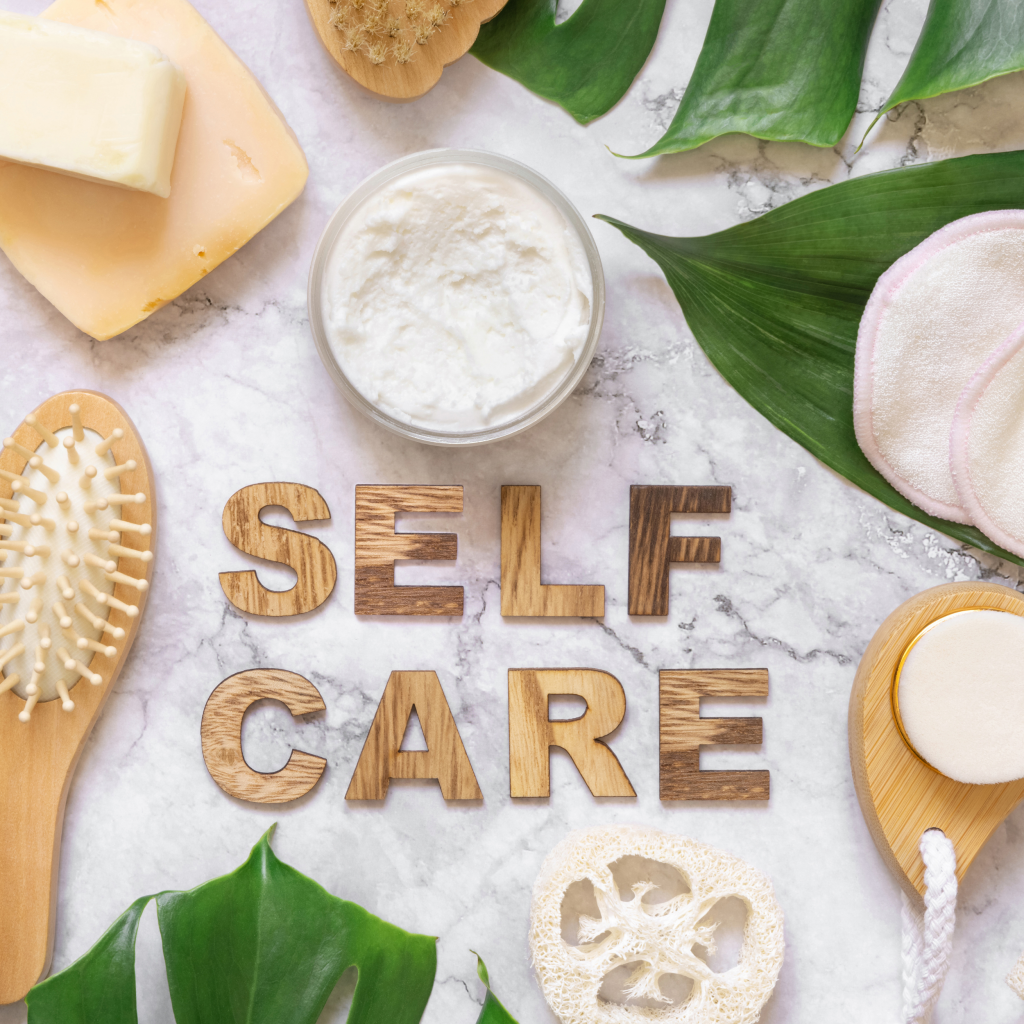Understanding Self-Confidence
When it comes to personal growth and achieving success, unlocking self-confidence plays a pivotal role. In this section, we will delve into what self-confidence truly means, explore its significance in personal development, and examine the various factors that can influence one’s level of self-confidence.

Defining self-confidence
Self-confidence can be defined as a belief in one’s abilities, qualities, and judgment. It is the unwavering assurance and trust in oneself to handle challenges, achieve goals, and overcome obstacles. Having self-confidence means having a positive perception of oneself and the skills necessary to excel in various aspects of life.
The significance of self-confidence in personal growth
Self-confidence acts as a catalyst for personal growth and success. When you possess a healthy level of self-confidence, you are more likely to take risks, embrace new opportunities, and step out of your comfort zone. This mindset allows you to unleash your true potential and make significant strides towards your goals.
Without self-confidence, one may hesitate to pursue their dreams, doubt their abilities, and succumb to the fear of failure. This can hinder personal growth, limit opportunities, and prevent individuals from reaching their full potential. Cultivating self-confidence is, therefore, crucial in unlocking personal growth and achieving success.
Factors influencing self-confidence
Various factors can impact an individual’s self-confidence. It is important to recognize and address these factors in order to foster a positive self-concept. Some key factors include:
- Past experiences: Previous successes and failures can shape one’s self-confidence. Positive experiences can boost confidence, while negative experiences can undermine it. It is essential to learn from past setbacks and focus on building a foundation of positive experiences.
- Support system: The people we surround ourselves with can greatly impact our self-confidence. A strong support system that provides encouragement, constructive feedback, and belief in our abilities can help boost our confidence levels.
- Self-image: How we perceive ourselves and our abilities can heavily influence our self-confidence. Nurturing a positive self-image and practicing self-acceptance are crucial for building and maintaining self-confidence.
- Skills and competencies: Developing and honing skills in areas of interest can significantly boost self-confidence. Acquiring knowledge, practicing, and mastering new skills can reinforce belief in one’s abilities.
- Mindset and self-talk: Our internal dialogue and mindset play a vital role in shaping self-confidence. Adopting a growth mindset, challenging negative self-talk, and practicing positive affirmations can help build a stronger sense of self-confidence.
By understanding the definition of self-confidence, recognizing its significance in personal growth, and identifying the factors that influence it, we can begin to unlock our own self-confidence. In the next sections, we will explore strategies and techniques to cultivate self-confidence and develop a positive self-concept.
Stay tuned for more insights on unlocking self-confidence!
Building a Positive Self-Concept
Recognizing Your Strengths and Weaknesses

When it comes to building a positive self-concept, one of the first steps is recognizing your own strengths and weaknesses. This self-awareness allows you to understand what you excel at and where you may need improvement. Take some time to reflect on your unique abilities and the areas in which you may struggle. Embrace your strengths and acknowledge that everyone has weaknesses. Remember, it’s important to focus on your positive qualities rather than dwelling on your shortcomings.
Challenging Negative Self-Talk

Negative self-talk can be detrimental to your self-concept. It’s easy to fall into the trap of criticizing ourselves and focusing on our flaws. However, challenging these negative thoughts is crucial for building a positive self-concept. Instead of letting self-doubt consume you, replace negative thoughts with positive affirmations. Remind yourself of your accomplishments, talents, and worthiness. Practice self-compassion and treat yourself with kindness. Over time, this shift in mindset can lead to a more positive self-concept.
Setting Realistic Goals
In order to cultivate a positive self-concept, it’s important to set realistic goals. These goals should be attainable and aligned with your personal values and aspirations. Setting unrealistic expectations can lead to disappointment and a negative self-image. Break down your goals into smaller, manageable tasks, and celebrate each milestone along the way. This not only boosts your self-confidence but also reinforces the belief that you are capable of achieving what you set out to do.
Celebrating Successes Along the Way

Celebrating your successes, no matter how big or small, is a crucial part of building a positive self-concept. Acknowledge and reward yourself for your achievements. Whether it’s completing a project at work or making progress towards a personal goal, take the time to celebrate your hard work and dedication. This not only boosts your self-confidence but also reinforces the positive beliefs you have about yourself. Surround yourself with supportive individuals who can celebrate your successes with you, further enhancing your positive self-concept.
By recognizing your strengths and weaknesses, challenging negative self-talk, setting realistic goals, and celebrating successes along the way, you can build a positive self-concept. Remember, building self-confidence is a journey, and it takes time and effort. Embrace your uniqueness, be kind to yourself, and focus on your personal growth. You have the power to shape a positive self-concept and lead a more fulfilling life.
Cultivating Self-Compassion
Embracing Self-Acceptance

Have you ever felt like you’re not good enough? It’s a common struggle many of us face, but embracing self-acceptance is the key to unlocking your self-confidence. It’s about acknowledging your flaws, accepting them as a part of who you are, and realizing that you are worthy of love and respect just as you are.
One way to cultivate self-acceptance is by practicing self-compassion. This means treating yourself with kindness, understanding, and forgiveness, just as you would a close friend. Instead of berating yourself for your imperfections, try to be gentle and supportive. Remember that nobody is perfect, and it’s okay to make mistakes.
To further foster self-acceptance, challenge negative self-talk and replace it with positive affirmations. Remind yourself of your strengths and accomplishments, and focus on your unique qualities that make you special. By embracing self-acceptance, you can build a solid foundation for cultivating a positive self-concept.
Practicing Self-Care and Self-Love

When it comes to unclocking self-confidence, practicing nurturing self-care and self-love is essential. It involves prioritizing your physical, emotional, and mental well-being. Taking care of yourself allows you to recharge, reduce stress, and maintain a positive outlook on life.
Self-care can take various forms, such as engaging in activities that bring you joy, setting boundaries, and practicing mindfulness or meditation. It’s about making time for yourself and doing things that nourish your mind, body, and soul.
In addition to self-care, practicing self-love is crucial for developing a positive self-concept. This means treating yourself with kindness and compassion, celebrating your achievements, and acknowledging your worth. When you love yourself, you radiate confidence and attract positive energy.
Developing Resilience and Bouncing Back from Setbacks
Life is full of challenges and setbacks, but it’s how we respond to them that defines our self-confidence. Developing resilience is the ability to bounce back from adversity, setbacks, and failures. It’s about maintaining a positive mindset and finding the strength to keep going, even when things get tough.
One way to cultivate resilience is by reframing your perspective. Rather than viewing setbacks as failures, see them as opportunities for growth and learning. Embrace the lessons they offer and use them to propel yourself forward.
Building a support network is another crucial aspect of developing resilience. Surround yourself with positive and uplifting individuals who believe in you and your abilities. Lean on them for support during challenging times, and remember that you don’t have to face obstacles alone.
In conclusion, cultivating self-compassion is vital for unlocking self-confidence. By embracing self-acceptance, practicing self-care and self-love, and developing resilience, you can foster a positive self-concept that empowers you to overcome obstacles and thrive. Remember, you are deserving of love, respect, and success just as you are.
Overcoming Fear and Self-Doubt
Identifying and confronting fears
Fear and self-doubt can be crippling, holding us back from reaching our full potential. But the first step towards overcoming these obstacles is to identify and confront them head-on. Take a moment to reflect on what exactly you are afraid of or doubt about yourself. Is it fear of failure? Fear of judgment? Self-doubt rooted in past experiences?

Reframing negative thoughts and beliefs
Once you’ve identified your fears and self-doubts, it’s time to reframe your negative thoughts and beliefs. Our minds have a tendency to focus on the negative, but by consciously shifting our perspective, we can create a more positive self-concept. Instead of thinking “I can’t do it,” ask yourself “What can I learn from this experience?” or “How can I grow from this challenge?”
Seeking support and guidance
No one should have to tackle their fears and self-doubt alone. Seeking support and guidance can make a world of difference in your journey towards self-confidence. Reach out to friends, family, or mentors who can provide encouragement and advice. Additionally, consider seeking professional help from a therapist or coach who specializes in building self-confidence. Remember, there is strength in asking for support.

As you work towards overcoming fear and self-doubt, remember that it’s a journey. Be patient with yourself and celebrate even the smallest victories along the way. By facing your fears, reframing negative thoughts, and seeking support, you are taking powerful steps towards cultivating a positive self-concept and unlocking your true potential.
Related Article: If you’re interested in learning more about reframing negative thoughts and beliefs, check out this article on positive psychology.
Related Article: For additional strategies on building self-confidence, visit this helpful resource on PsychCentral.
Related Article: If you’re looking for a supportive community to join, consider exploring the resources provided by Psychology Today where you can connect with like-minded individuals on your self-confidence journey.
Enhancing Self-Confidence through Personal Development
Continuous learning and skill-building
As humans, we have an innate desire to grow and improve ourselves. One powerful way to enhance self-confidence is through continuous learning and skill-building. By expanding our knowledge and acquiring new skills, we not only boost our self-esteem but also equip ourselves with the tools necessary to thrive in various aspects of life.
When we engage in continuous learning, we open ourselves up to new opportunities and possibilities. Whether it’s taking a course, reading books, or attending workshops, each learning experience adds to our personal development journey. By actively seeking knowledge, we not only gain expertise in specific areas but also increase our confidence in our abilities.
Additionally, skill-building plays a vital role in building self-confidence. When we invest time and effort in developing our skills, we become more competent in our chosen fields. This competence naturally translates into confidence, as we possess the necessary know-how to tackle challenges and achieve our goals.
To enhance self-confidence through continuous learning and skill-building, it’s essential to set clear goals and create a plan of action. By identifying areas for improvement and actively working towards them, we can measure our progress and celebrate our achievements along the way.
Stepping out of your comfort zone
If you want to unlock self-confidence, it’s crucial to step out of your comfort zone. Staying within familiar boundaries may feel safe and secure, but it also limits our growth potential. By pushing ourselves to try new things and take on challenging opportunities, we expand our capabilities and build resilience.
Stepping out of our comfort zone can be intimidating, but it’s where true personal growth happens. It could involve speaking up in meetings, taking on a leadership role, or even pursuing a new hobby or passion. Each time we venture into unfamiliar territory, we prove to ourselves that we are capable of more than we initially believed.
When we step out of our comfort zone and face our fears head-on, we not only build self-confidence but also develop a sense of empowerment. We begin to trust ourselves and our abilities, knowing that we have the courage to tackle any situation that comes our way.
Remember, growth happens outside of our comfort zone. Embrace the discomfort, challenge yourself, and watch your self-confidence soar.
Surrounding yourself with positive influences

They say that you are the average of the five people you spend the most time with. Surrounding yourself with positive influences can significantly impact your mental state and become instrumental in unlocking self-confidence. When you have a supportive network of individuals who believe in you and your abilities, it becomes easier to believe in yourself.
Positive influences can come in various forms, such as mentors, friends, or colleagues who inspire and encourage you. These individuals not only provide emotional support but also serve as role models for personal growth and success. Their belief in you can be contagious, fueling your self-confidence and motivating you to reach new heights.
Additionally, surrounding yourself with positive influences can help counteract any negative self-talk or self-doubt that may arise. When you have a strong support system, they can remind you of your strengths and achievements, boosting your self-esteem during challenging times.
To cultivate positive influences, seek out individuals who align with your values and goals. Engage in meaningful conversations, collaborate on projects, and offer support in return. Together, you can create a positive and uplifting environment that fosters self-confidence and personal development.
In conclusion, enhancing self-confidence through personal development involves continuous learning and skill-building, stepping out of your comfort zone, and surrounding yourself with positive influences. By actively engaging in these strategies, you can cultivate a positive self-concept and unlock your full potential. So, are you ready to embark on your personal development journey and boost your self-confidence?








